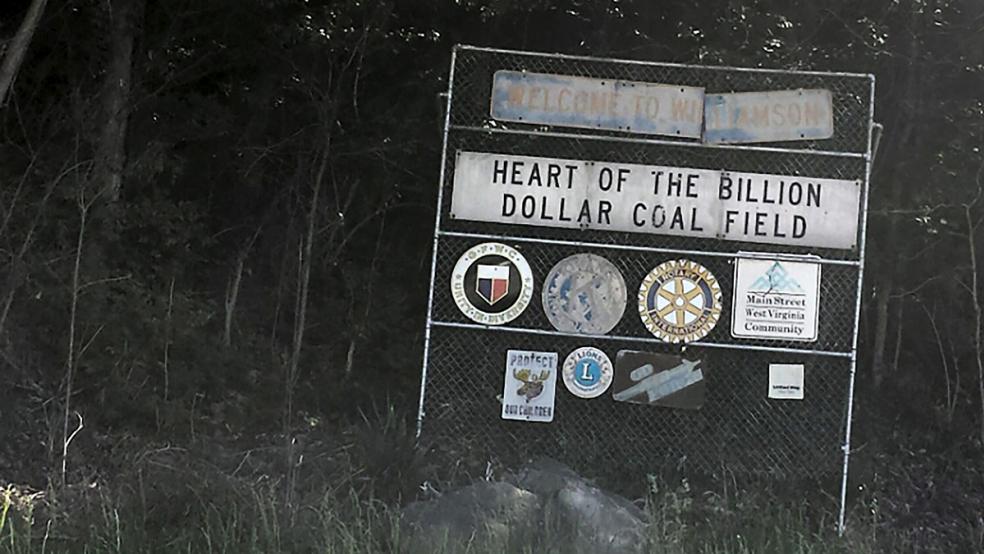Experts have cited many factors trying to explain why West Virginia has been hardest hit by the opioid addiction crisis that has swept the country over the past decade, killing 33,091 Americans in 2015 alone.
Economic despair, widespread unemployment, inadequate mental health facilities and a sense of isolation in communities scattered throughout the rugged, mountainous coal state may have all contributed to the widespread abuse of OxyContin, oxycodone and other powerful prescription painkillers, experts say.
Related: The 20 Most Expensive Prescription Drugs in America
West Virginia has the highest rate of deaths from drug overdoses of any state. Between 2011 and 2013, West Virginia suffered from a rate of 33.5 drug overdoses per 100,000 people, compared to a national average of 13.4 deaths, according to a report by the non-partisan Trust for America’s Health and the Robert Wood Johnson Foundation.
However, there is another more insidious explanation for what went terribly wrong in West Virginia: Unscrupulous drug manufacturers and out-of-state wholesalers bombarded West Virginia with huge supplies of these highly addicting drugs. This tidal wave of painkillers on pharmacists’ shelves allowed many physicians to freely prescribe the drugs at the behest of their patients and fueled an underground market of illicit drug sales.
A searing report over the weekend by the Charleston, W.Va., Gazette-Mail documented the trail of shipments of painkillers to West Virginia’s economically depressed southern coalfields — places like tiny Kermit, population 392, which received shipments of nearly nine million highly addictive and potentially lethal hydrocodone pills to a single pharmacy over a two-year period. Mingo County, where Kermit is located, has the fourth-highest prescription opioid death rate of any county in the United States.
In neighboring Wyoming County, where shipments of OxyContin have doubled in recent years, the county’s overdose death rate leads the nation, with 54.6 per 100,000. “One mom-and-pop pharmacy in Oceana received 600 times as many oxycodone pills as the Rite Aid drugstore just eight blocks away,” according to the newspaper’s report.
Related: How Big Pharma Lobbyists Make the Opioid Crisis Worse
During the past six years, major drug wholesalers flooded the state with 780 million hydrocodone and oxycodone pills, while 1,728 West Virginians suffered fatal overdoses on those two painkillers, according to the Gazette-Mail investigation. West Virginia has 1.84 million residents, ranking 38th in population nationally.
The deluge of drugs was the equivalent of an astounding 433 pain pills per resident of the state, according to the report. And those shipments were apparently made without raising the suspicions of state public health and regulatory officials or triggering the intervention of federal drug enforcement officials.
More than half of all the pain pills coming into the state were provided by three pharmaceutical drug wholesalers -- McKesson Corp., Cardinal Health and AmerisourceBergen. For more than a decade, those distributors ignored rules to report suspicious orders for controlled substances to the state board of pharmacy, the newspaper charged.
Moreover, the board of pharmacy failed to enforce those same rules, while turning a blind eye to tiny pharmacies in southern counties that ordered absurdly large amounts of pain killers, far more than could possibly be needed by patients in such small communities.
Related: The U.S. War on Drugs in Afghanistan Is an $8 Billion Failure
McKesson and the other wholesalers insist they were doing nothing wrong, but simply meeting the demands of licensed pharmacies. They argue that since pharmacies were filling the prescriptions of licensed doctors, the pills never should have gotten into the hands of addicts or black market dealers unless unscrupulous physicians wrote illegal prescriptions.
John Saia, McKesson’s general counsel, said in a letter to the newspaper last week that the doctors who write the prescriptions and the pharmacists who fill them are “in a better position to identify and prevent the abuse and diversion of potentially addictive controlled substances” than the wholesalers.
Major drug companies that manufacture the painkillers also have worked to frustrate government enforcement. A joint investigation by the Center for Public Integrity and the Associated Press earlier this year found that major drug companies frequently lobbied state legislatures across the country to resist legal restrictions on their drugs, such as OxyContin, Vicodin and Fentanyl.
In fairness, federal authorities weren’t totally asleep at the switch. As the opioid epidemic raged throughout West Virginia and other Appalachian states over the past decade, the U.S. Drug Enforcement Administration has gone after companies distributing millions of highly addictive pills, The Washington Post reported in late October.
Related: US Death Rate From Heroin and Opioid Abuse Rages Out of Control
While some distributors cooperated with federal authorities and tipped them off to irregularities in purchases, many others resisted. The investigation was subsequently dropped or curtailed beginning in 2013 after senior DEA officials and some members of Congress ordered a shift in enforcement emphasis, the newspaper reported.
Among 13 companies that had been targeted for the probe were McKesson, Cardinal Health and AmerisourceBergen, which together control 85 percent of all prescription drug distribution in the U.S.





